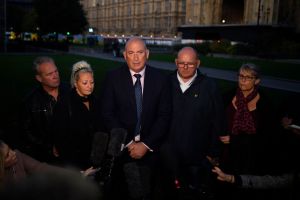Hands up if you have ever heard of Brian Moles? No? Then what about Anne Sacoolas? Yep, I bet that is registering a bit more. Sacoolas, as pretty well the whole of Britain now knows, was spirited out of the country by American authorities after allegedly causing the death of teenage motorcyclist Harry Dunn by driving on the wrong side of the road near an airbase in Northamptonshire, England last August. Yesterday, secretary of state Mike Pompeo announced that he was rejecting a British demand for the extradition of Mrs Sacoolas, arguing that she had diplomatic immunity.
And Mr Moles? Last year, Moles pleaded guilty to causing death by dangerous driving at Southampton Crown Court in Hampshire, England, after killing a motorcyclist while making an illegal turn. He was given a 22-month prison sentence, suspended for two years, ordered to undertake 300 hours of community service and told to pay £1,800 ($2,350) in court costs.
If there ever was a moral tale as to why it is better to own up rather than try to escape justice, the tale of Anne Sacoolas is it. It was unlikely that Sacoolas was going to face years in jail.
The manner in which Anne Sacoolas and US authorities have handled her case has catapulted her from being a suspect in a sad but humdrum driving case to being a fugitive from justice, who now risks arrest if she ever leaves the US. That is how she will remain until or unless she voluntarily returns to Britain to face the music. There is also the case of her husband, Jonathan Sacoolas, who was at first described as a ‘diplomat’ but who turned out to be based at RAF Croughton, which does intelligence work. Whatever his precise role, most of the world will now take him to be a spook, which might just limit his career and his family’s movements in future.
Was it really worth risking all that in order to avoid a fine, perhaps a suspended jail sentence and a driving ban? Moreover, the US’s decision to ship her out of the country has hugely damaged diplomatic relations. Already, the extradition treaty between the US and the UK had been criticized as being lopsided in the US’s favor. The inevitable result of this case will be to make it harder for the US to extradite fugitives from the UK in future. The first sniff of a story about the US trying to extradite a suspected criminal from Britain and the Sacoolas case will be dragged up and used as an argument as to why UK courts should be less co-operative with those in the US. ‘To do a Sacoolas’ threatens to enter the lexicon of international law. That, she will have to be aware, is the price of infamy.
This article was originally published on The Spectator’s UK website.


















